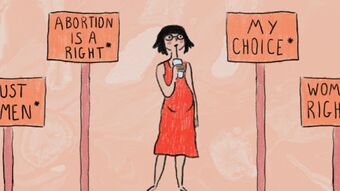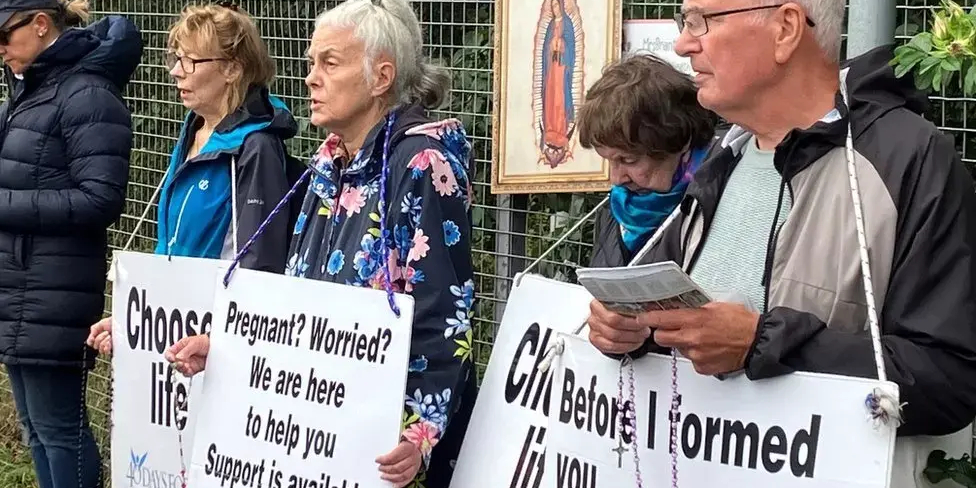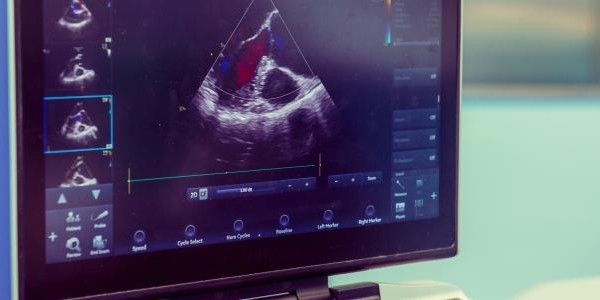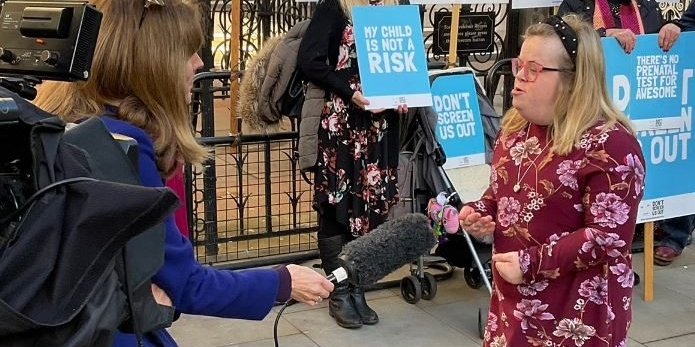6 things the abortion lobby won’t tell you about decriminalisation – part one
Abortion
In the last few weeks, the UK has witnessed the most significant change to abortion law in the past 50 years.
Unless the Assembly in Northern Ireland is restored, as of 22nd October, Northern Ireland will have one of the most liberal abortion laws in Europe. According to the letter of the law, abortion will be available, for any reason, for up to 28 weeks’ gestation (6 ½ months).
This has been achieved by repealing sections 58 and 59 of the Offences Against the Person Act 1861 (OAPA), so that abortion is moved from the criminal law and placed under medical regulation.
Abortion lobbyists have made it clear for some time that it is their intention to see abortion radically liberalised across the whole of the UK. Following Northern Ireland, campaigners are seeking to attain the same change for England, Wales and Scotland, using the forthcoming Domestic Abuse Bill as a legislative vehicle to amend the law. If successful, this will likely render the Abortion Act 1967, which created exceptions under which an abortion could legally be performed, defunct.
I have no doubt that abortion campaigners feel very passionately that what they are doing is right – that they are defending women and making significant ‘progress’ for our rights and bodily autonomy. The slogan defining their campaign – ‘We Trust Women’– is awfully compelling. Who wouldn’t agree that women should be trusted?
What are we told this campaign will achieve? Well, apparently women will no longer face the wrath of a cruel, patriarchal and outdated law. They won’t need to have their abortion signed off by that horribly paternalistic requirement for two doctors. Women will, finally, achieve that ‘gold standard’ of true equality: having ‘the same control over their bodies as men’.
Yet, what is particularly telling about this campaign lies exactly in what it won’t tell us. It is cloaked in soundbites and promises of women’s liberation, rather than an honest assessment of what this law will mean in practice and what potential disadvantages follow – for both women and for babies. Judging from the contradictory statements made by the Minister during the debate on Northern Ireland, it’s a concept that even our own Government haven’t got a grasp on.
So here are six things the abortion lobby won’t tell us about the biggest change to abortion law in 50 years:
1. Women are not being made into criminals under the current law
BPAS, Britain’s second largest abortion provider, have been campaigning for some time for decriminalisation. Their campaign hinges on the idea that women are currently being made into criminals if they have an abortion outside the scope of the law. They have recently ramped up these efforts, releasing a video entitled ‘Smile, You’re Knicked’, in which a hoard of police officers burst into a woman’s home, as if she is a dangerous kingpin at the centre of a drug trafficking network, and arrest her for possession of abortion pills.
An alarming idea, but utterly false.
The law is often a very different thing on its face than it is in its practical outworking, particularly when it comes to criminal law. I suggest that everyone swayed by this propaganda looks up prosecutions under the OAPA. Almost all the prosecutions in the past 10 years have been for third parties who have either attacked or given abortifacients to women without their knowledge or consent, such as the man who slipped abortion pills into his wife’s breakfast. The OAPA has served far more to protect women than it has to harm them.
There have been only two prosecutions for women in the last 10 years under the OAPA – both in extreme circumstances when their babies were very late in term. One of these cases, Sarah Catt, involved a woman who took abortion pills at 39 weeks’ gestation, delivered the baby at home and buried the body. To this day, the baby has not been found. She had gone to the doctor on several occasions and had plenty of opportunities to procure an abortion under the law. This act, however, involved the destruction of a very viable child. As the judge in the case said: ‘all right-thinking people would consider this more serious than involuntary manslaughter or indeed any offence save murder.’ It was also highly dangerous for a woman at that stage of gestation to perform her own abortion using abortifacients, without any medical supervision.
As with assisted suicide, the law has a stern face but a kind heart. It should send a clear message that regulates behaviour, i.e. that a viable baby should be protected and that abortions should be performed in clinically-directed circumstances only, for a woman’s safety. In practice, it is often held not to be in the public interest to prosecute an individual who acts outside the law, thus it is fallacious to claim that women are being regularly criminalised for performing abortions.
2. The abortion lobby want abortion up to birth
MPs campaigning on this issue consistently attempt to deny this claim. Perhaps they don’t know their own lobby, or perhaps there are differing views within it. However, whilst I sincerely hope this isn’t true, there’s evidence to suggest that this is the ultimate intention.
The only other statute left regulating abortion once the OAPA is repealed is the Infant Life Preservation Act 1929, which makes it an offence to abort a baby capable of being born alive, unless it will save the life of the mother. Section 5(1) of the original Abortion Act 1967 described this Act as "protecting the life of the viable foetus." Northern Ireland has an identical law.
How long will it be before this statute too is described as ‘cruel, draconian, and outdated’? It’s not beyond the realms of possibility. After all, a woman such as Sarah Catt could also have been charged under this Act. Abortion up to birth has already been made legally permissible by our friends in New York, Canada and Australia.
BPAS CEO, Ann Furedi, is a highly influential voice in the pro-abortion movement. She does not hide the fact that she believes abortion should be available up to birth. In 2016, she stated: “Let me be very clear: there should be no legal upper limit” i.e. we need to get rid of the 24-week limit. It’s also worth noting she has publicly said that she believes life begins at conception, she is pro sex-selective abortion, and she believes abortion should be used as a form of birth control.
The reason we have restrictions around abortion from 24 weeks is the ‘viability argument’ -- the idea that the baby is now capable of being born alive (and indeed surviving) which means it can be independent of its mother. However, for some in this lobby the woman’s interests should always override the baby’s, even if it is a ‘person’ from this point.
We’ve already seen this inserted into draft legislation. In Diana Johnson’s Abortion Bill last year, a draft of the Bill was accidentally placed online and then quickly taken down. Significantly, it repealed the Infant Life Preservation Act and allowed women to self-abort up to birth. When the final Bill was published, this provision was removed, but it does reveal that the intentions of campaigners within Parliament align with Furedi’s.
The ramifications of such a move are considerable. A baby’s life, whilst it remains in the womb, will have no protection at all. Polling has consistently shown that the general public do not want this. 93% of people polled in Northern Ireland in 2018 believe that both lives in a pregnancy are important.
It will also potentially have huge consequences for women. Medical regulation simply isn’t sufficient in this regard. Supplying medications without prescription will still be an offence, but with a much-reduced penalty. We are already seeing women accessing abortion pills online. As abortion pills become much more readily available, without the restrictions inherent in the criminal law, this incurs a greater risk that women may take abortifacients at a much later stage of gestation without an accurate gestational scan, or they will potentially be more at risk to coercion. This is not about patronising women – it’s about protecting them, something abortion clinics do not have a great track record on. Making something legal does not suddenly remove the risks involved.
So why are BPAS just campaigning to decriminalise up to 24 weeks? Well it’s because they know the public aren’t with them. What we know from polling is that only 1% of people actually support abortion up to birth for any reason. The majority of people, particularly women, actually support greater restrictions on abortion.
3. Decriminalisation removes the last vestige of legal protection for preborn babies – both wanted and unwanted.
This is the perhaps the most significant change that decriminalisation will usher in to our legal system.
The legal status of a baby in the womb is, quite frankly, a totally nebulous concept that has flummoxed even the greatest minds in our legal system both domestically and internationally.
For many years, lawmakers avoided any definitive conclusion as to what exactly a baby is, and what rights it therefore deserves, when cases came before the courts.
Much of this was influenced by medical ethics. In ethics, the debate rages about whether a baby can be a biological human being and yet not a person, with the full rights entitled to born individuals. What makes something a person? ask the ethicists. Is it rationality? Is it moral sensibility? Is it independence?
The courts never reached any definitive answer. What is agreed so far is that a baby in the womb does not possess a legal personality in the same sense as a born individual. However, it does have some status legally: it is recognised as a separate, biological human being and a unique organism. It is not an appendage of the woman, like her kidney or her arm. It is not ‘nothing’—it is definitely something and we need to consider what that something is very carefully, else we may be destroying something that’s just as much a person as you or I.
The fact that a foetus is not a ‘nothing’ is demonstrated by the degree of protection it is offered from termination. All Acts relating to abortion demonstrate attempts to protect the preborn baby, and not merely from indignity or maltreatment, but from destruction. Although it does not necessarily follow that it is therefore a person, the fact that it is protected from abortion, save in specific circumstances, gives it a certain value and recognition under the law.
Under decriminalisation, this protection and recognition is gone. A biological human life can be terminated on request. I’m not for a moment suggesting that any woman has an abortion for flippant reasons, and I have great sympathy for the agonizing grief that many go through in making this decision. But it has to be recognized that this change has wide and very serious implications for babies in the womb. The more justification provided for a baby’s destruction, the more it is devalued in status and the less it is protected. Significantly, this will affect all babies pre-28 weeks, whether they are wanted or not.
This is part one of a two-part series. Read part two here.
Naomi Marsden is Communications Officer for CARE.






Share story
6 things the abortion lobby won’t tell you about decriminalisation – part one